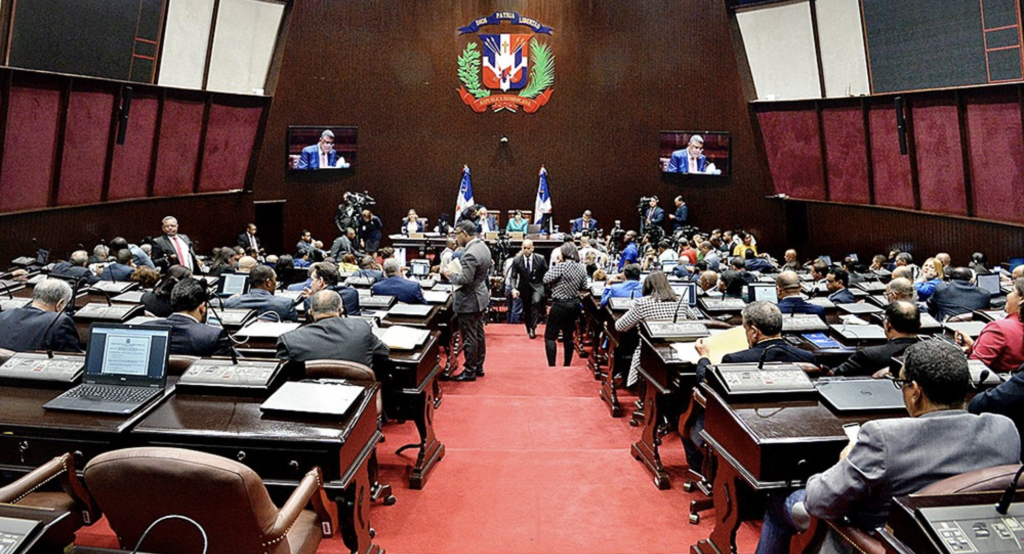
Former President Leonel Fernandez explains his objections to the Public Trust Bill the Abinader administration is pushing through Congress in an opinion piece in Listin Diario on 16 January 2023. The former President is against several articles in the bill that passed in the Senate, then was amended in the Chamber of Deputies and now returns to the Senate for passing. First, Fernandez says the bill is of organic nature and requires two thirds of the vote, and not the simple majority with which it passed in the Chamber of Deputies.
Fernandez explains in an article in Listin Diario that the Ley 189-11 Desarrollo del Mercado Hipotecario y el Fideicomiso en la República Dominicana was originally drafted to promote low costing housing projects to reduce the housing deficit. The law does include Art. 14, a clause that has been used to create public trusts – the Ciudad Juan Bosch housing project and the Red Vial (feeding off the tolls). The Punta Catalina thermoelectric trust and the Pro-Pedernales tourism development trusts are two others that are being implemented and are pending their legitimization with the passing of the public trust bill.
Fernandez explains that Article 14 allows the government to authorize that assets or rights that are part of the public patrimony be managed by private parties for the collective interest.
Fernandez, nevertheless, warns there are now distortions happening in the application of the public trusts. “But during the current PRM administration, what has been unleashed is a kind of TrustGovernment. There are more than 20 public trust projects underway, for an amount of more than RD$40 billion, which the government has in its portfolio, awaiting their complete legalization and legitimization with the approval of the bill in the National Congress,” he warns.
He alerts that the public trust is not a legal figure of universal scope. He explains that it is not used in Spain nor in most European countries, the United States nor in the United Kingdom.
Historically it has most been used in Latin America — Panama, Mexico, El Salvador, Guatemala, Venezuela, Colombia, Peru, Argentina and Honduras.
There is much that can go sour. Fernandez alerts that in Mexico, the Congress, at the request of current President Lopez Obrador has just approved the extinction of 109 public trusts for alleged lack of transparency and the transfer of public assets to transnational companies.
In Honduras, recently 19 trusts have been eliminated at the request of new President Xiomara Castro.
Fernandez says that the public trust is a legal financial instrument that could well play a role in the service of the economic and social development of the people. But that for this to happen it requires trust that the government not transfer public assets to groups or sectors of economic power; and second, that the government not use it for political electoral purposes.
The latter means that the trust become a parallel budget that is fed with loans that go to the trust patrimony, but that in the end commit the public treasury to carry out works or projects that otherwise could not be carried out.
Several who have objected the public trust say that the private partners get to take the profits, while the state to deal alone with the debts from loan taking for the projects.
Fernandez says in the Listin Diario article that in the month-long extension of legislative sessions is time enough for legislators to debate the transcendence of the public trust in the national development and get it to work for the best.
Also commenting on the bill, lawyer Francisco (Pancho) Alvarez says that if it passes it is likely that it will be contested in the Constitutional Court. He understands the bill requires two thirds vote, not simple majority.
Opcion Democratica deputy Jose Horacio Rodriguez says that the deputies improved the bill received from the Presidency to incorporate citizen access to information and to place procurement procedures under the Procurement Agency. Yet, the National Congress has yet to amend the Procurement Law 340-06 to enable the penalizing of corruption in contracting. At present, sanctions are light.
Huchi Lora during Esta Misma Semana urges improvements to the law.
President Luis Abinader extended the legislature through 15 February 2023 to give more time for the passing of important bills (Decree 03-23).
Read more in Spanish:
Listin Diario
Noticias SIN
Hoy
Hoy
El Caribe
Esta Misma Semana
16 January 2023

